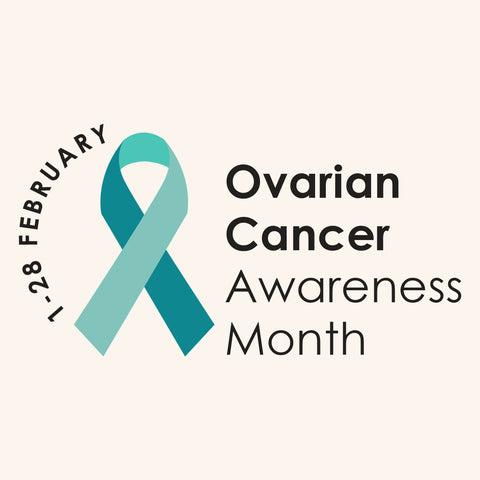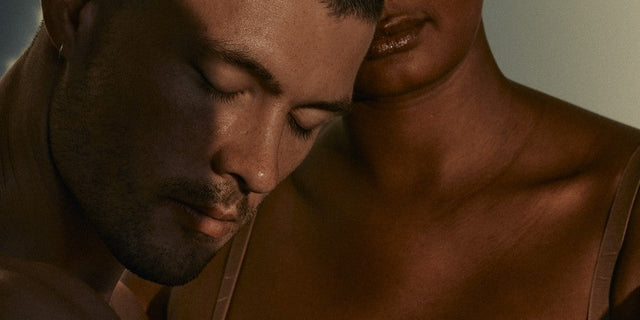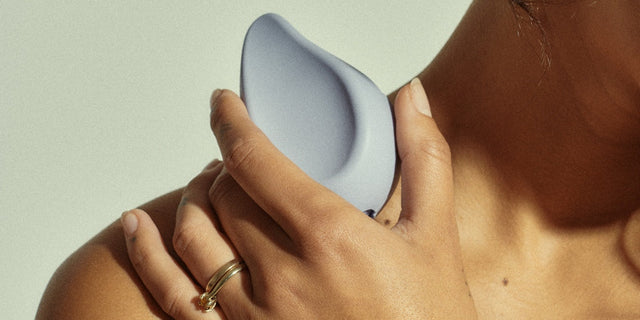Ovarian Cancer Awareness Month is held each February to raise awareness of the signs and symptoms of ovarian cancer, to share the stories of real women affected by the disease, to highlight the risk factors for ovarian cancer and educate Australians on ovarian cancer diagnosis and treatment.
Nancy was single, 36 and working in retail in Melbourne when her life was turned upside down by ovarian cancer.
Here, she shares her personal story.
How did you know something was wrong?
I was actually quite unwell for about six months before I found out I had ovarian cancer. I was working in a job I hated for a boss who was a bully and under constant pressure. The very first sign something was wrong was random sharp abdominal pains that would come and go and weren’t related to anything else. Next, I started getting what I now know are ‘classic’ ovarian cancer symptoms – bloating, frequent urination and feeling full after just a couple of bites of food – but at the time I just put it down to my difficult work situation, stress and exhaustion.
I did see a GP and had a bunch of tests which just showed elevated white blood cells, so nothing really came of it. I then saw a naturopath to try to boost my immune system.
The tipping point came when I vomited one morning for no reason getting ready for work. This was a red flag so I asked my sister for her GP’s details and went to see her instead. She was awesome, and genuinely saved my life.
By the time I left that appointment, I had what seemed like an overwhelming list of tests and specialist appointments to attend, and within a fortnight I was in hospital having emergency surgery to remove a 20cm mass attached to my right ovary, which was officially diagnosed as an aggressive, fast-growing ovarian cancer while I was on the operating table.
How did you feel when you were diagnosed?
It was a lot to wake up too. I was confused and overwhelmed, and the hardest part was having to make rapid treatment decisions and think through what they would mean for the rest of my life. My medical team recommended a second surgery, a full hysterectomy, which would put an end to my fertility and take away the option to have children. I’m usually a slow, measured decision-maker, so having to make quick decisions on such big issues which I’d never really had to think about before was really difficult, especially whilst feeling a huge sense of grief and loss. The whole experience felt like I’d stepped onto an express train – and I just wanted to get off and choose none of it.
Perhaps surprisingly, I didn’t actually feel scared of the disease, my biggest fear was losing myself and not recognising who I was at the end of it. On a positive note, it was a time when I felt a huge amount of love and support from friends and family near and far. Learning how loved I was during that time was very humbling.
How long was your treatment process?
About seven to eight months, which included two major surgeries, four rounds of chemotherapy, five weeks of weekly chemo and six weeks of daily radiotherapy. I also had plasma transfusions to help my body recover from the battering it had taken.
How important was having the right medical team?
Hugely. My GP was incredible, and we kept in touch throughout my treatment. She always supported my medical choices, including some alternative therapies, without judgement and with a genuine understanding of who I was and what I needed to do to get through it.
My gynaecologist was brilliant – my GP referred me – and I’m very grateful she did. I’ve since learned ovarian cancer outcomes can vary greatly by having a specialist surgeon. Mine was always kind, caring and empathetic. I never felt like I was part of a production line and the oncologist who managed my post-surgical treatment was the same.
Did you access any other non-medical treatment or support?
I chose to do the Gawler Foundation’s 10-day life and living cancer support programme, and I was grateful to receive a bursary to cover some of the cost. This retreat was pivotal for me, helping me catch my breath after my surgeries and empowering me to look after myself at the deepest level.
I also formed some incredible friendships from this, and the Foundation’s other support and meditation groups, and those fellow cancer sufferers have remained some of my greatest friends. I found it a space where I could be truly heard, no matter what I thought, said, felt or did. The hard part of meeting friends through serious illness is you are more likely to lose some of them, but it doesn’t get more real than that to keep you living in the moment and enjoying the life you have. Some of the lifestyle choices I made during that time are still an important part of the way I live today, and for that I am very grateful.
I also sought advice and support from Counterpart and Ovarian Cancer Australia.
Do you have any advice for those with suspicious symptoms?
Just to get help as soon as you can, and if you don’t get answers to your symptoms, or you just know you don’t feel right, keep pushing to get to the bottom of it, or seek a second opinion.
Any advice for those who’ve been recently diagnosed? People undergoing treatment?
It’s important to activate your network – medical, social, complimentary therapies – whatever feels right for you. Ask for help – and say yes when it’s offered. If someone wants to cook for you, clean for you, pick up your groceries, drive you to an appointment – let them. And don’t be afraid to ask for what you actually want. Find your voice and ask those cooking to prepare the foods you actually want to eat – do whatever you need to do to make it easier to get through each day.
Don’t forget about your mental health either. Ask your GP to draw up a mental health plan so you can seek emotional support without having to spend a fortune.
Finally, choose who you want to be on your team, and if you don’t feel comfortable with someone – try to get someone else instead. Limit interactions with people who don’t make you feel good. Put yourself first. And remember, the bad days will end, and good days will appear again.
Do you think anything positive has come from your experience?
While it was definitely one of the hardest times in my life, it did bring some positives. I see life differently and I’m more present in each day, each moment of my life. I spend time with people who suit me, if something doesn’t feel right medically, I act on it quickly, and I’ve found peace with my decisions. There is still grief and sorry over what I’ve lost, and there always will be, but I’m ok with it.
Following my treatment, I became a peer support volunteer with Counterpart, an organisation based on women supporting other women with breast and gynaecological cancers. The five years I’ve spent volunteering have been some of the best I’ve ever had in a work-type environment. It’s an organisation run with compassion, vision, determination and support and all the volunteers have either had cancer experience, or close connections to the disease. We chat to women with cancer on the phone and in person, offer resources and run online events. Every shift leaves me feeling content and supported and I feel blessed to be involved with such a wonderful service.

WHAT ARE THE EARLY SYMPTOMS OF OVARIAN CANCER?
In the early stages, ovarian cancer often has no symptoms, which means it is usually diagnosed once it’s more advanced or has spread to other organs. However, early symptoms can occur, and some people report one or more of the following:
- abdominal bloating
- loss of appetite or feeling full quickly
- pressure or pain in the abdomen, pelvis or back
- toilet habit changes: constipation, diarrhoea, increased flatulence, frequent/urgent urination
- menstrual irregularities, or post-menopausal bleeding
- excessive tiredness
- indigestion and/or nausea
- pain during intercourse
- unexplained weight loss or weight gain.
Many of these symptoms can be caused by other conditions, and they certainly don’t mean you have cancer. But if they’re new for you, they’re severe or they continue beyond a couple of weeks, keep track of them and go see your GP.
For more detailed information: https://www.cancer.org.au/assets/pdf/understanding-ovarian-cancer-booklet








